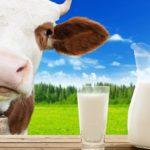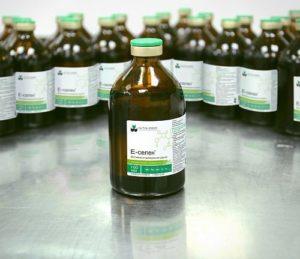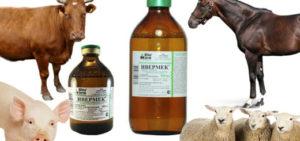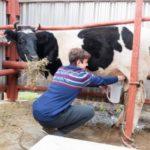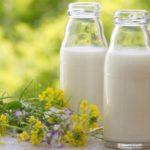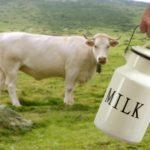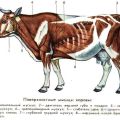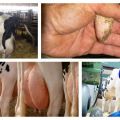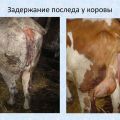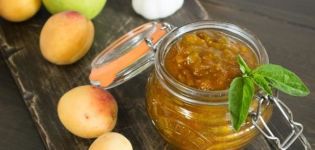Why cow's milk is bitter and what to do, how to restore normal taste
It happens that a cow that looks healthy begins to produce milk with a noticeable bitterness in taste. The deterioration in the taste of dairy products is a serious problem for the farmer, associated not only with the difficulties in selling the goods, but also with the need to treat livestock. The most common reason why a cow's milk often tastes bitter is the use of spoiled feed and bitter plants, but sometimes the unpleasant taste of the product is a consequence of serious pathologies.
Why can a cow's milk taste bitter?
Rancidity of taste is associated with poor health of the cow, improper diet or ignorance of the hygiene rules for keeping cattle.
Helminths
Milk tastes bitter with fascioliasis - damage to the tissues of the cow's liver by helminths. Helminthiasis is the reason not only for the deterioration in the quality of dairy products, but also for the oppression of the physical condition of the cow. In an infected individual, the temperature rises to 40-41 ° C, appetite disappears, and the urge to vomit is noted. The liver was enlarged on palpation, the muscles of the peritoneum were compacted.
The symptomatology of helminthiasis is most pronounced in the summer months. During the cold season, the only symptom may be a bitter taste.
In case of suspicious symptoms, it is necessary to send the cow's feces for laboratory analysis.
Fascioliasis is treated with closantel-based injectables. The injection is given once, the dose is 10 ml per 200 kg of body weight. Powder drugs based on phenzene, fenbendazole are also effective. They are given 2 times with a 2-week interval in the morning during feeding.
Mastitis
Of all cattle diseases, mastitis is the most common reason why milk tastes bitter. Provocateurs of inflammatory pathology - infection of the genital tract, mechanical damage to the udder, improper pumping, disregard of sanitary rules. Milk from a sick cow must not be used for drinking and making fermented milk products. Veterinarians diagnose cattle with chronic rather than acute mastitis. The acute form is accompanied by:
- swelling of the udder;
- the development of gangrene;
- purulent and bloody inclusions in milk.
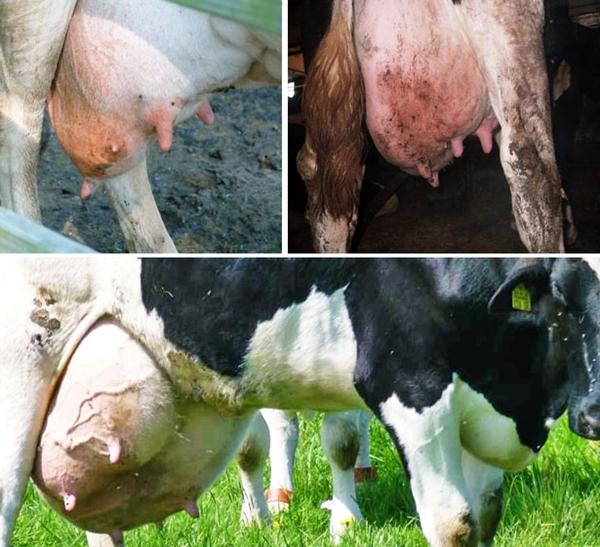
The chronic form in many cases is asymptomatic. The only sign is a change in product quality:
- heterogeneity, the presence of clots;
- low fat content;
- bitter taste.
Mastitis is treated with injectable antibiotics "Mamifort", "Masticid", "Antimast". They are used once daily. You should also regularly treat the udder with antiseptic solutions: manganese, ichthyol or "Furacilin".Medicinal fluids are injected into the nipple slowly, with extreme caution, avoiding high pressure. Before the procedure, be sure to express milk.
Other health problems
A common reason why cow's milk is bitter is a violation of the liver, provoked by a viral, bacterial, parasitic infection.
Functional liver pathologies are manifested, in addition to the rancidity of the product:
- vomiting;
- diarrhea;
- an increase in temperature;
- increased breathing;
- swelling and tenderness of the palpable liver;
- decrease in milk yield;
- watery consistency of milk.
Milk is bitter, turns yellow, with a curvature of the gallbladder and anomalies of the biliary tract. These pathological conditions are common in cattle, because of them, bile is released in small quantities, accumulates in excess, affecting the quality of the product.
Bitter taste is the result of impaired metabolism, leading to fluctuations in blood sugar, excessive accumulation of acetoacetic acid.
Another reason why the product tastes bitter is the increase in gastric acidity. If laboratory analysis has shown that milk is harmless, it can be consumed, then to eliminate rancidity, the product should be heated to 40 ° C, then cooled.
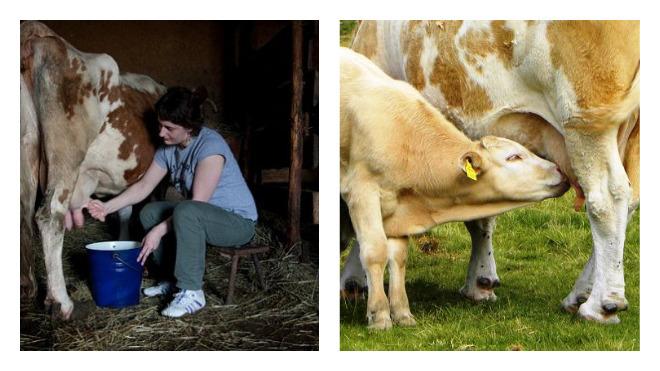
When a cow eats the ground, chews on tree bark, licks concrete and brick walls, then a lack of minerals should be suspected. The hotter milk suggests that the micronutrient deficient is cobalt.
Heat in summer
In the warm season, grazing is used, so rancidity of dairy products is rarely observed. But on hot days, a cow can contract leptospirosis.
The disease affects the vascular system, kidneys, liver, muscle tissue. A sick cow has diarrhea, fever, yellowness of the integument, darkening of urine. Leptospirosis is treated with a hyperimmune polyvalent serum. A subcutaneous injection is made, 0.4 ml of the drug is taken per 1 kg of weight.
Winter problems
In winter, the situation when milk is bitter is more common than in summer. At low temperatures, the bacteria that cause rancidity multiply more actively than the microorganisms that make the food sour. To prevent the problem, livestock are kept in a heated and ventilated barn during the colder months. Cows should not be in stalls all winter; they are periodically taken out to fresh air. The winter enclosure must be regularly cleaned of snow drifts and manure.
Pregnancy
For natural reasons, milk tastes bitter in a cow that has 1-2 months left before calving. Due to hormonal changes in the product, the concentration of leukocytes and casein increases. The milk yield falls, the cow goes into a dry period. A few days after giving birth, the quality of the product returns to normal.
Violation of milking hygiene
If unwashed dishes are used during milking, bacteria and dust particles will end up in the milk. Before each milking, the container must be thoroughly washed, the milk residues from the previous milking must be discarded. Before milking, the worker puts on clean clothes, washes his hands with a hygienic product, thoroughly rinses the cow's udder with boiled water, and wipes it off with a clean towel.

The first milk streams are milked into a separate container in order to pour out, because they contain a high concentration of reductase, an enzyme that makes milk bitter.
Content errors
In case of non-observance of hygienic and sanitary recommendations in the stable, infection and dirt penetrate into the cow's body, negatively affecting the quality of dairy products. To eliminate the factors leading to rancidity of the product, the farmer should:
- regularly clean the barn, disinfect;
- maintain optimal microclimatic conditions in the stable;
- wash the feeders regularly;
- Replace dirty and rotten bedding daily.
Poor quality feed poisons the cow's body, increases the acidity of gastric juice. To prevent the milk from becoming bitter, do not give to livestock:
- rotten, moldy hay, grain;
- poisonous herbs;
- spoiled cake;
- flax seed meal;
- yeast.
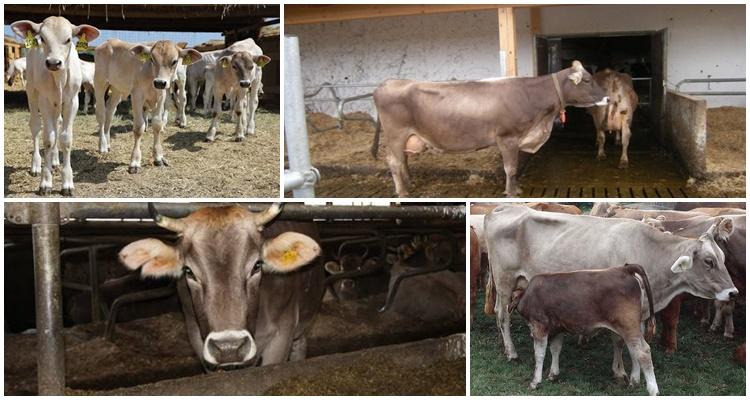
Bitter herbs in the diet
The aromatic substances contained in plants accumulate in the mammary glands. Products obtained from a cow that ate:
- mountain ash;
- sagebrush;
- yarrow;
- spicy crops - dill, garlic and onion feathers, cumin;
- vegetables - potatoes, rutabagas, carrots.
For the milk to become bitter, the cow must eat the listed plants for several days. In the spring, the cow can eat horsetail, her milk will become foamy, with a soapy taste. And the excess of beet silage gives the herring flavor.
How to prevent the problem from occurring
In order not to encounter a change in the taste of dairy products, the recommendations listed in the table must be followed.
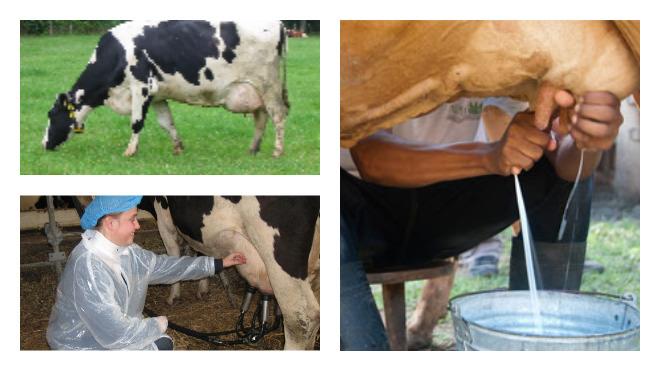
| Problem | Preventive measures |
| pre-calving period | the problem goes away by itself, signals the start of the launch |
| mastitis | veterinarian recommends nipple antimicrobials at prophylactic doses |
| helminthiasis | antiparasitic treatment 2 times a year |
| lower blood sugar | feed is enriched with a small portion of sugar |
| high acidity | using licking stones containing baking soda, adding baking soda to the feed (1 small spoon per 10 liters) |
| cobalt deficiency | cobalt chloride tablets are used, the prophylactic course lasts a month, 2 tablets per day |
| leptospirosis | walking the herd away from swampy and floodplain areas, organizing a watering point, gradual transition from winter to summer maintenance |
| violation of hygiene | stalls are cleaned regularly, the barn is aired, the udder is washed before milking, wiped dry |
| poor quality feeding | hay and grain feed must be fresh and of high quality; daily portions of beets, potatoes, tops must not be exceeded |
Why is sour cream bitter when milk is normal?
Good milk can deteriorate due to improper storage, as a result of which sour cream and other fermented milk products will turn out to be rancid. At enterprises, products are pasteurized, so they are stored longer, and homemade milk quickly deteriorates, bacteria multiply in it.
Milk prepared for making sour cream starts to taste bitter when sour if taken from a cow that has undergone antibiotic therapy.
Sour cream starts to taste bitter when:
- standing in direct sunlight;
- storage at high temperatures;
- using iron or copper dishes;
- improper handling of storage containers.
Spoiled sour cream cannot be eaten due to the threat of poisoning. Heat treatment will not return the product to usability. Observing sanitary and hygienic standards, following preventive recommendations, the farmer will receive only tasty and sweet milk from the cow.

